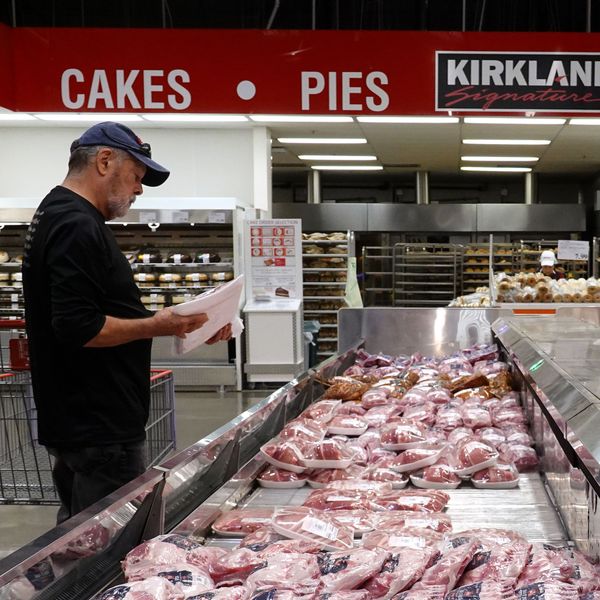Remember that recent blog post you read about the popularity of genetically modified foods? Or the economics expert on the news who questioned if paying the price of organic food was 'worth it'?
According to a new report, these views were very likely the product of a public relations blitz by Big Food and Big Ag firms that are actively working to spread misinformation about the safety of industrial agriculture practices and discredit the value of organic food in the face of growing popular demand.
At the same time the sale of organic products has skyrocketed--jumping to more than $35 billion in 2013--the country's largest food and chemical companies have spent hundreds of millions of dollars to combat this trend. In 2013, Monsanto alone spent $95 million on marketing.
"Rather than respond to changing market demands by shifting the way they do business, many large food and agrochemical companies are using tobacco-style PR tactics to mislead the public and attack the organic food industry to try to win back skeptical consumers," states the environmental watchdog Friends of the Earth in a new study published on Tuesday.
The report, Spinning Food: How Food Industry Front Groups and Covert Communications are Shaping the Story of Food (pdf), reveals the methods employed to spread industry propaganda. Tactics include infiltratingsocial media sites with seemingly independent platforms, attacking the credibility of scientists and other advocates, partnering with media venues on disguised 'native advertising,' targeting female audiences by co-opting female bloggers and promoting messages that disparage "organic moms" as elitist bullies, and crafting relationships with third-party allies who echo carefully crafted talking points.
What's more, these industry-bought voices are finding a platform on some of the largest corporate media outlets.
"In the last four years alone, these companies have set up six new front groups that often appear as independent experts in the media, but are in fact made up of industry or PR professionals that are promoting messages designed to defend industry profits and win critical national policy battles on these issues," the report states. These groups include the U.S. Farmers and Rancher's Alliance, partnered with Monsanto, DuPont, Dow, and Syngenta, and the Coalition for Safe and Affordable Food, created by the Grocery Manufacturer's Association.
While the food industry's use of such campaigns is not new, according to the study, the level of spending in recent years, the increase in the use of front groups, and the deployment of covert social media tactics are "unprecedented."
"This onslaught of industry-sponsored spin is aimed at stemming the growing tide of consumers seeking healthier food produced without GMOs, toxic pesticides, or routine antibiotics," said Kari Hamerschlag, senior program manager at Friends of the Earth.


